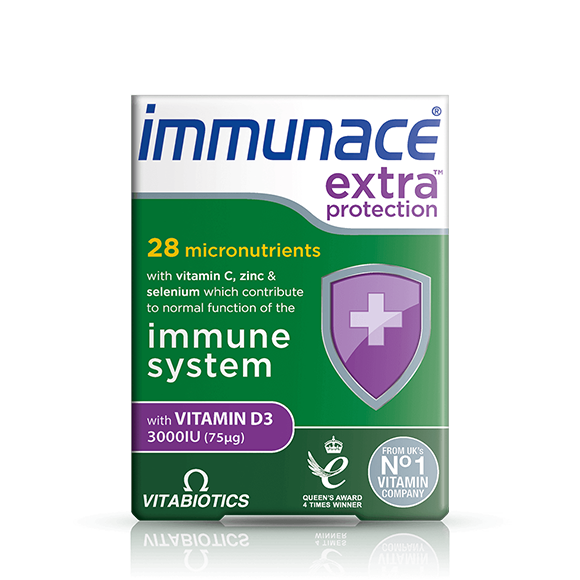Popular Categories
|
Frequently Asked Questions
Selenium is an essential trace mineral. We don’t produce it in our bodies, which means that we need to obtain it from our diet. Selenium is involved in many vital processes in the body, from the maintenance of normal hair and nails, to the normal function of the immune system. Learn more in our guide: Selenium explained: What Is It & What Is It Good For?
Ultra Selenium provides 165 µg of premium quality selenium, combined with vitamins C and E, plus Acai Berry from Brazil. Selenium, vitamin C and vitamin E all contribute to the protection of cells from oxidative stress.
Selenium plays a number of important roles in the body, including the normal function of the immune system, as well as normal thyroid function. Selenium also contributes to normal hair and nails, and the protection of cells from oxidative stress, caused by free radicals.
Selenium contributes to the normal function of the immune system as well as normal thyroid function. Learn more about Supporting Your Immune System in our guide.
Many of our immune system vitamins include selenium, along with other immune supporting nutrients, such as vitamin D, vitamin C and zinc.
Selenium contributes to the maintenance of normal hair. Perfectil Hair combines extra selenium* with key nutrients, including extra biotin*, which also contributes to normal hair, as well as copper which contributes to normal hair pigmentation. Perfectil Hair also provides marine collagen and grape seed extract.
*Compared to Perfectil Original
Selenium helps to support normal nails. Our Perfectil Nails formula provides specially selected nutrients, including extra selenium* which contributes to the maintenance of normal nails, as well as biotin to support normal skin and zinc to help maintain normal hair. Perfectil Nails also provides Horsetail botanical extract and MSM.
Brazil nuts are the richest source of selenium, with 28g (six to eight nuts) providing around 544μg of selenium, so you can go over the upper recommended limit if you eat too many. Seafood is also an excellent source of selenium, particularly yellowfin tuna, as well as oysters, clams, salmon, and crab. You’ll also find selenium in meats, such as beef, pork and turkey, as well as in cottage cheese and eggs. Some of the best plant based sources include brown rice, mushrooms, spinach and bananas.
The recommended daily allowance in the UK for selenium is 75μg (micrograms) per day for men aged 19-64 and 60 micrograms per day for women.




